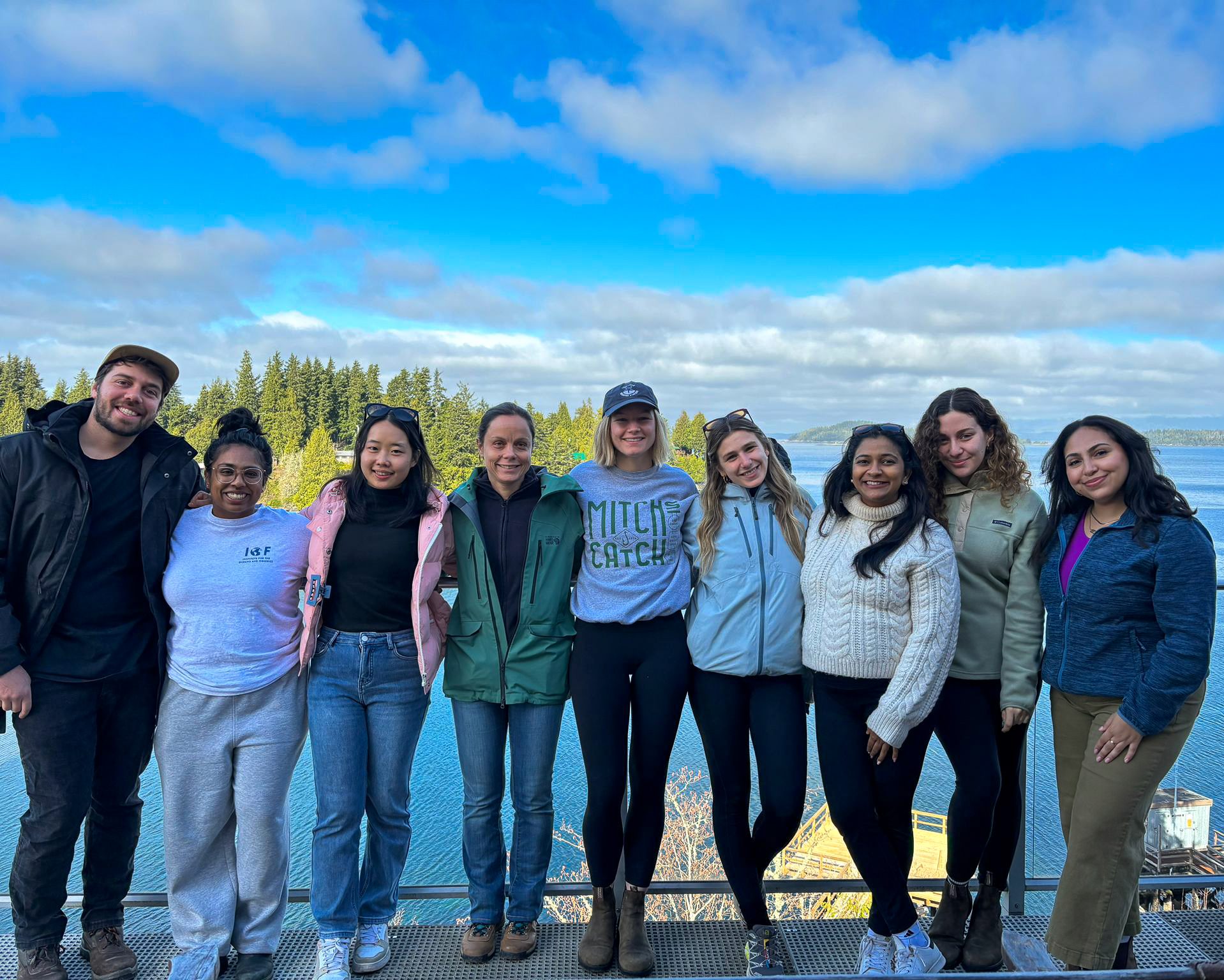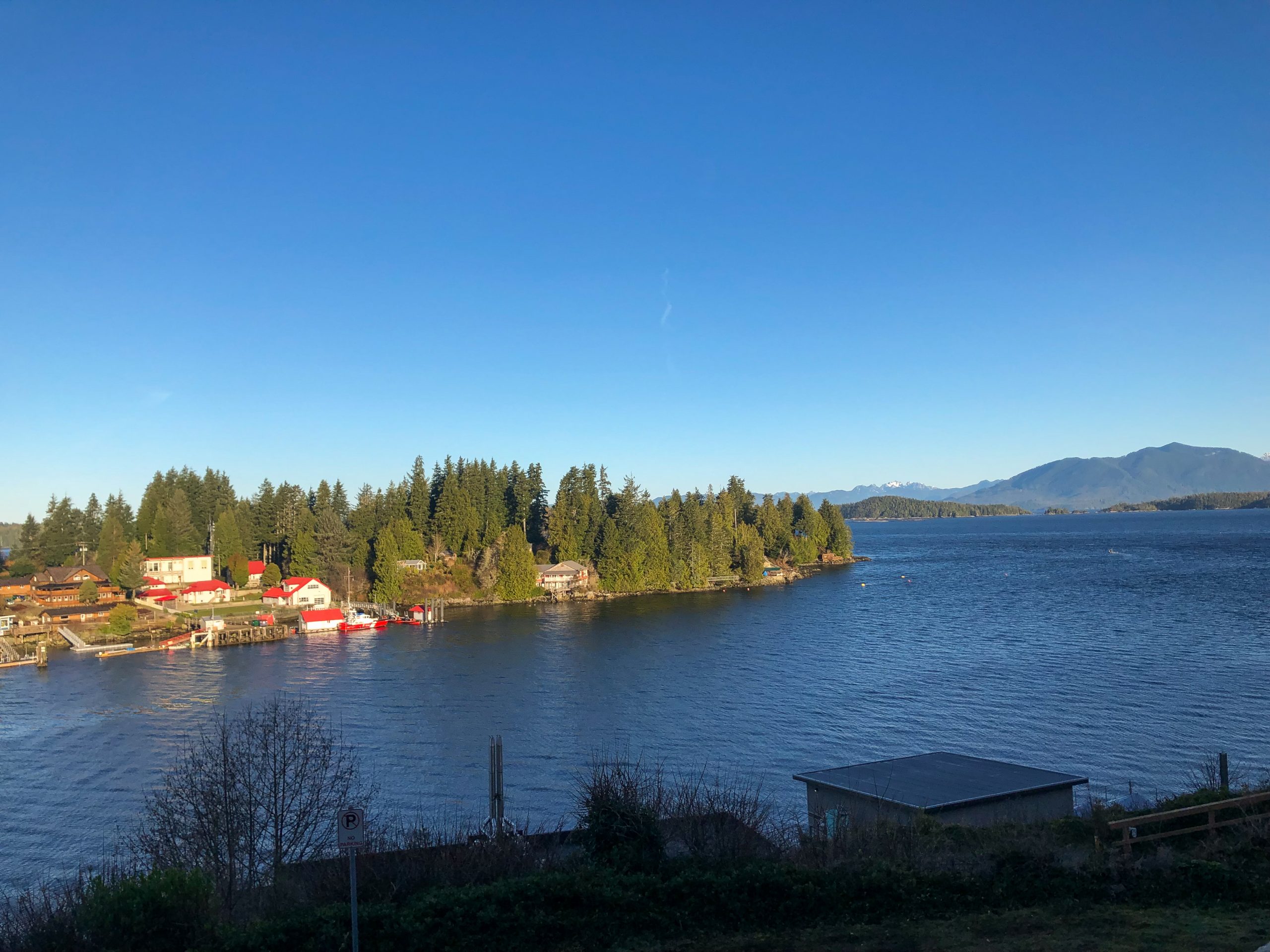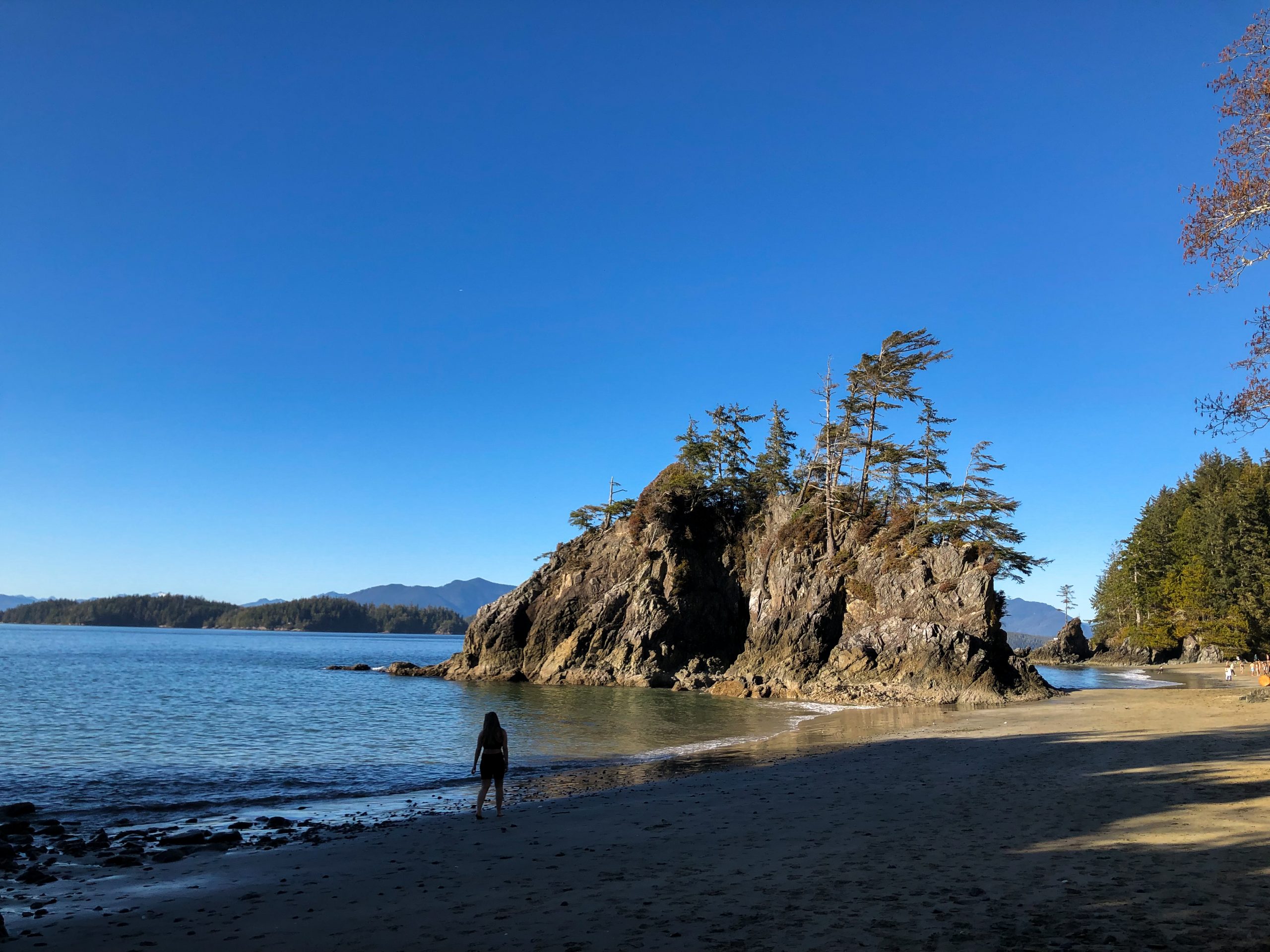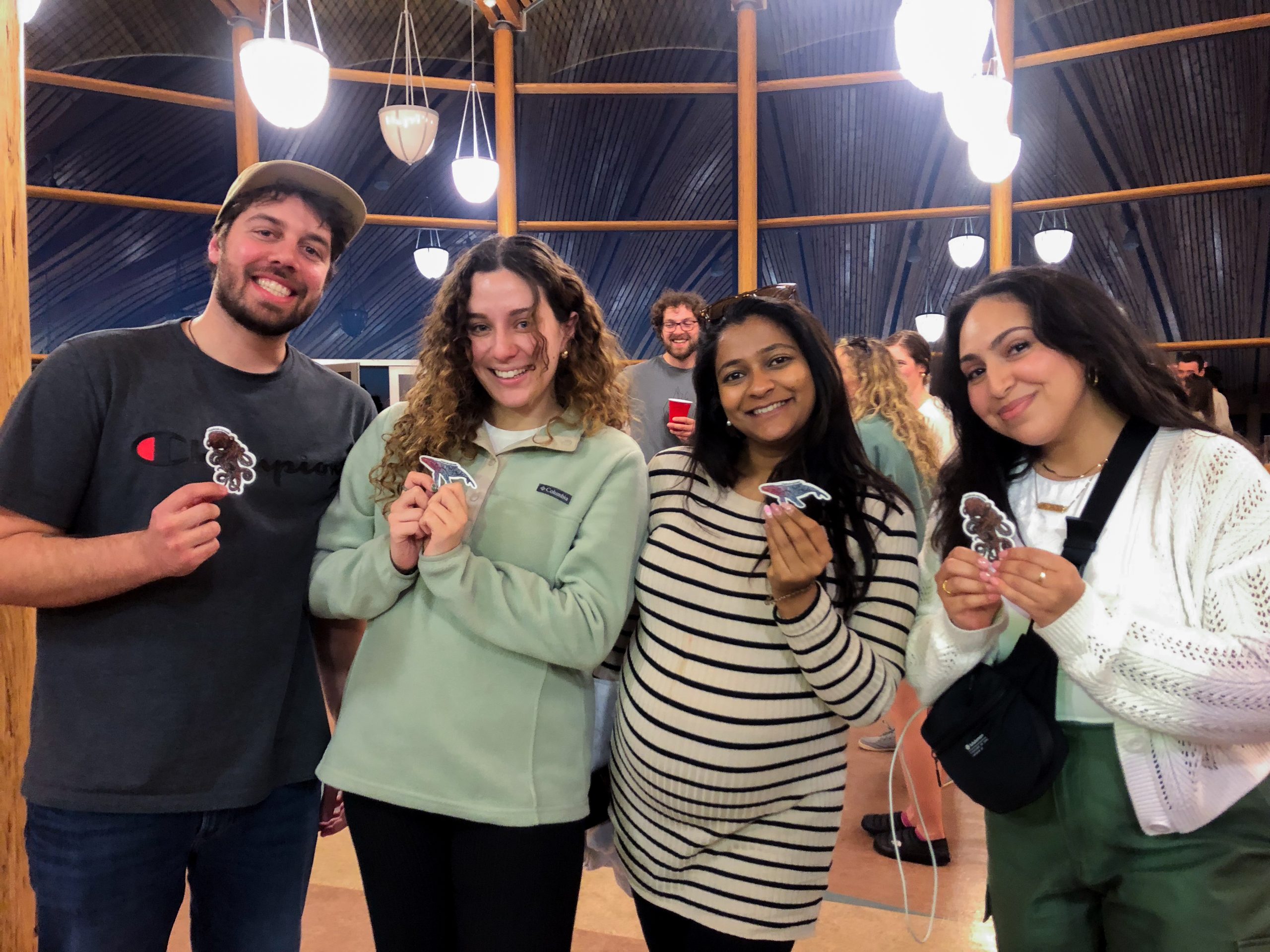
Guilherme Suzano Coqueiro, Solana Pasqual, Yixuan Chen, Joana Dutilh De Capitani, Grace Melchers, Joan Moreaux, Samara Polwatta, Anna Luna Rossi and Mahynour Saleh at PEEC 2024. Credits: Megan Duchesne
Surrounded by wild beaches and old growth forests, IOF students recently attended the 45th annual Pacific Ecology and Evolution Conference (PEEC) held at the Bamfield Marine Sciences Centre.
The students gave talks on food security, environmental DNA, and bottom trawling, and presented posters on humpback whale diets. They also explored the natural beauty of the community, learned from Indigenous leaders about Indigenous history on the West Coast of Vancouver Island and networked with fellow early-career scientists.
“It was really refreshing to be surrounded by young scientists,” said Anna Luna Rossi, a master’s student in the Sea Around Us unit at the Institute for the Oceans and Fisheries. “It’s great when you’re at conferences with professors and working professionals, but it is also really nice to be supported by young people and hear what they have to say.”
As a student-run conference, PEEC aims to do just that by providing opportunities for early-career scientists to exchange ideas and seek collaborations with peers from across Western Canada and the United States. PEEC brought together over 100 scientists and researchers from all over North America to present on anything from intertidal jumping spiders and invasive bullfrogs to island songbirds and coastal wolves.


Brady Beach, Bamfield, B.C. Credits: Solana Pasqual
IOF presentations included “The effects of climate change on food security in Tla’amin” by graduate student Mahynour Saleh. Climate change is changing the availability of fish and shellfish, which are important dietary staples for the Tla’amin Nation. Saleh’s study is pivotal in understanding how seafood harvesting and food security are being impacted by human-induced change. When combined with studies and research partaken by the Tla’amin Nation, all this knowledge will be key in helping communities and people learn how to navigate these issues and take part in conservation efforts.

Guilherme Suzano Coqueiro, Anna Luna Rossi, Samara Polwatta and Mahynour Saleh at PEEC 2024. Credits: Solana Pasqual
Saleh was able to find fellow researchers at the conference who were also working on Indigenous food security, including Carter Burtlake, who was an undergraduate researcher in UBC Zoology. Burtlake presented a poster on how food sovereignty, community engagement, and climate change guide Huu-ayaht First Nations’ marine monitoring program, including in managing a tuc̓up (sea urchin) garden by several youths in the Nuu-chah-nulth Warriors program.
“It was nerve-wracking to present,” said Saleh, who is a part of the Changing Ocean Research Unit at the IOF. “But then I saw that everyone else was also like me, it made me feel a lot better, and it was really cool to see what other people were doing and the data they were collecting.”
Other IOF student presentations included “Employing environmental DNA to resolve spatial differences in marine biodiversity” by Grace Melchers, and “What happens to marine biota after we stop bottom trawling” by Joana Dutilh De Capitani. Joan Moreaux presented a poster on “You are what you eat: Humpback whale diet composition in the Strait of Georgia.”
PEEC 2024 ended with a keynote speech by Indigenous leader, Stella Peters, who is a Huu-ay-aht Traditional Knowledge Holder and Beach keeper for Anacla in Pachena Bay. Students left Bamfield, B.C. with more knowledge on how to be better scientists and researchers, while acknowledging and learning about the Indigenous efforts already taking care of Vancouver Island.
Tags: Bamfield, bottom trawling, environmental DNA, food security, humpback whales, Indigenous conservation, Indigenous culture, Indigenous history, IOF students, Nuu-chah-nulth Warriors, Pacific Ecology and Evolution, PEEC 2024, Sea Around Us, UBC, UBC Zoology, Vancouver Island